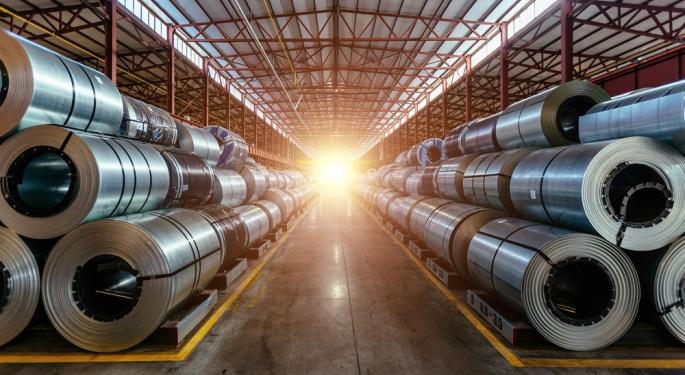Canada Hits Back At Trump's 50% Steel Tariffs With $1 Billion Rescue, New Quota System
Canada will introduce new measures to defend its steel industry against the impact of tariffs. Prime Minister Mark Carney announced the implementation of the plan proposed a month ago, during a visit to Hamilton-based steel fabricator Walter’s Group.
"This is about protecting Canadian jobs and standing up for fair trade," Carney said per CPAC, adding that more than 90% of Canada's steel exports currently go to the U.S.—a concentration he called "unsustainable."
"We will also implement tariffs on steel imports from all non-U.S. countries containing steel melted and poured in China," he added. Carney's reaction comes after President Donald Trump doubled tariffs on Canadian steel and aluminum to 50% on June 3.
To address this situation, Carney proposed a new tariff rate quota system. Starting August 1, countries with free trade agreements (excluding the U.S. and Mexico) will face a 50% tariff on any steel exports to Canada that exceed 2024 volumes. For countries without such agreements, the quota for tariff-free steel imports will be cut to half of 2024 levels, with the same 50% tariff applied above that threshold.
Furthermore, the government will provide up to CA$1 billion ($730 million) into the Strategic Innovation Fund to help domestic steel companies modernize, develop high-value defense-related products, and shift into markets less exposed to foreign competition. Ottawa also pledged CA$70 million ($50.90 million) over three years for retraining and support for up to 10,000 workers via Labour Market Development Agreements.
“These measures will ensure Canadian steel producers are more competitive by protecting them against trade diversion resulting from a fast-changing global environment. This is about building a steel industry that Canadians can count on—no matter what's happening abroad,” Carney said.
Commodity heavyweight Rio Tinto (NYSE:RIO), Canada's top aluminum exporter, has already felt the impact of U.S. tariffs. According to a Bloomberg report, the firm stated Wednesday that it incurred $321 million in additional costs due to U.S. duties on its aluminum in the first half of the year. However, a portion has been recovered through higher Midwest premiums.
"The impact of tariffs is still feeding through to inflation and sentiment," the company said, warning that uncertainty could weigh further on downstream demand.
Despite the disruption, Rio has continued shipping about three-quarters of its Canadian aluminum output to the U.S. But executives say rising costs, combined with trade volatility, are testing the resilience of cross-border supply chains.
Read Next:
Photo: Shutterstock
© 2025 Benzinga.com. Benzinga does not provide investment advice. All rights reserved.
Posted-In: Government Large Cap News Guidance Commodities Politics Legal Global



